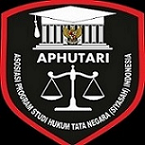Hubungan Akal dan Hati Dalam Al-Qur’an
Abstract
The Qur'an is the word of Allah SWT for all mankind which contains knowledge, so to obtain it, humans need to think. Calls for research and thinking activities have been reiterated in the Qur'an with various words such as ta‘qiluun, tafakkara, tafaqqahun and others. However, in the surah al-A'raf verse 179 mentions the heart combined with the word faqiha (yafqahuun), giving the meaning that the heart functions to understand something, this shows the existence of a thought process through the heart and mind. The formulation of the problem of this research, what is the meaning of the words يَفْقَهُوْنَ and قُلُوْبٌ in the Qur'an surah al-A'raf verse 179 and how is the relationship between the mind and heart in the surah al-A'raf verse 179. The aim is to know the relationship between reason and heart. heart, then humans should be able to use it according to His will. This research is a library research, the primary data source is the Qur'an and the book of interpretation, while the secondary data sources are books and scientific works related to research. The conclusion of this research is that in the Qur'an surah al-A'raf verse 179, it shows that there is a combination of heart and mind in the process of working in the human body. Through this combination, healthy humans will be formed and their spiritual potential will be nurtured so that they can relate to Allah SWT and other creatures correctly according to commendable morals by applying them in social life.
Keywords
Full Text:
PDFReferences
Referensi
a. Sumber Buku
Daulay, Haidar Putra. Qalbun Salim: Jalan Menuju Pencerahan Rohani. Jakarta: Rineka Cipta, 2009.
Ghulsyani, Mahdi. Filsafat-Sains Menurut al-Qur’an,. Bandung: Mizan, 1988.
Hafidz, Ahsin W. al-. Kamus Ilmu al-Qur’an. Jakarta: Amzah, 2012.
Hamdi, Ahmad Zainul. Tujuh Filsuf Muslim: Pembuka Pintu Gerbang Filsafat Barat Modern. Yogyakarta: Pustaka Pesantren, 2004.
Hasanah, Mamluatul. Proses Manusia Berbahasa: Perspektif Al-Qur’an dan Psikolinguistik. Malang: UIN-Maliki Press, 2010.
Maraghi, Ahmad Musthahfa al-. Tafsir al-Maraghi Jilid 9. Semarang: Toha Putra, 1987.
Masduha. Al-AlFaazh: Buku Pintar Memahami Kata-kata Dalam Al-Qur’an. Jakarta: al-Kautsar, 2017.
Nasution, M. Darwin Z. Konsep Dasar Ilmu Matematika, Fisika, dan Tafsir Az-Zaujan. Medan: CV. Joehanda, 2017.
Samawi, Muhammad al-Tijani as-. Tidakkah Kamu Berpikir. Bandung: Nuansa Cendekia, 2020.
Sarwar, Al-Haj Hafiz Ghulami. Filsafat Qur’an. Jakarta: Pustaka Firdaus, 1993.
Shaleh, Abdul Rahman. Psikolog: Suatu Pengantar Dalam Perspektif Islam. Jakarta: Kencana, 2009.
Suryadi, Rudi Ahmad. Dimensi-dimensi Manusia: Perspektif Pendidikan Islam. Yogyakarta: Deeppublish, 2015.
Tim Penyusun. Kamus Bahasa Indonesia. Jakarta: Pusat Bahasa, 2008.
Zuhaili, Wahbah az-. Tafsir Al-Munir: Aqidah, Manhaj dan Syari’ah Jilid 5. Jakarta: Gema Insani, 2018.
b. Sumber Jurnal
Enghariano, Desri Ari. “Tafakkur Dalam Perspektif Al-Qur’an.” Jurnal El-Qanuny: Jurnal Ilmu-ilmu Kesyariahan dan Pranata Sosial, vol 5, no. 1, 2019.
Gunawan, Syafri. “Peranan Islam Dalam Pembang1unan Peradaban Dunia.” Jurnal El-Qanuny: Jurnal Ilmu-ilmu Kesyariahan dan Pranata Sosial, vol. 5, no. 1 2019.
Harahap, Sumper Mulia. “Mukjizat Al-Qur’an.” Jurnal Al-Maqasid: Jurnal Kesyariahan dan Keperdataan, vol 4, no. 2, 2018.
Hasiah. “Syirik Dalam Perspektif Al-Qur’an.” Yurisprudentia: Jurnal Hukum Ekonomi, vol. 3, no. 1, 2017.
Hasibuan, Ummi Kalsum. “Keadilan Dalam Al-Qur’an (Interpretasi Ma’na Cum Maghza Terhadap Q.S. Al-Hujurat {49} ayat 9).” Al-Fawatih: Jurnal Kajian Al-Qur’an dan Hadis, vol. 1, no. 2, 2020.
Nasution, Muhammad Arsad. “Urgensi Sains Dalam Penerapan Petunjuk Al-Qur’an dan Hadits (Analisis Terhadap Metode Penentuan Arah Kiblat, Hisab Rukyah dan Waktu Shalat Dalam Ilmu Falak).” Jurnal Al-Maqasid: Jurnal Ilmu Kesyariahan dan Keperdataan, vol. 7, no. 1, 2021.
Ritonga, Hasir Budiman. “Hubungan Ilmu dan Agama Ditinjau dari Perspektif Islam.” Jurnal Al-Maqasid: Jurnal Ilmu Kesyariahan dan Keperdataan, vol. 5, no. 1, 2019.
Simanjuntak, Dahliati. “Etika Berbahasa Perspektif Al-Qur’an.” Yurisprudentia: Jurnal Hukum Ekonomi, vol. 3, no. 2, 2017.
Siregar, Khoiriah. “Fenomena Hoax dalam Al-Qur’an Perspektif Tafsir Maqasidi.” Al-Fawatih: Jurnal Kajian Al-Qur’an dan Hadis, vol. 1, no. 2, 2020.
DOI: https://doi.org/10.24952/el-thawalib.v3i1.5086
Refbacks
- There are currently no refbacks.









Editorial Office Board :
Kampus UIN Syekh Ali Hasan Ahmad Addary Padangsidimpuan
Jl. T Rizal Nurdin No.Km 4, RW.5, Sihitang, Padangsidimpuan Tenggara, Kota Padang Sidempuan, Sumatera Utara 22733
 Jurnal El-Thawalib is licensed under a Creative Commons Attribution-ShareAlike 4.0 International License.
Jurnal El-Thawalib is licensed under a Creative Commons Attribution-ShareAlike 4.0 International License.
View My Stats






